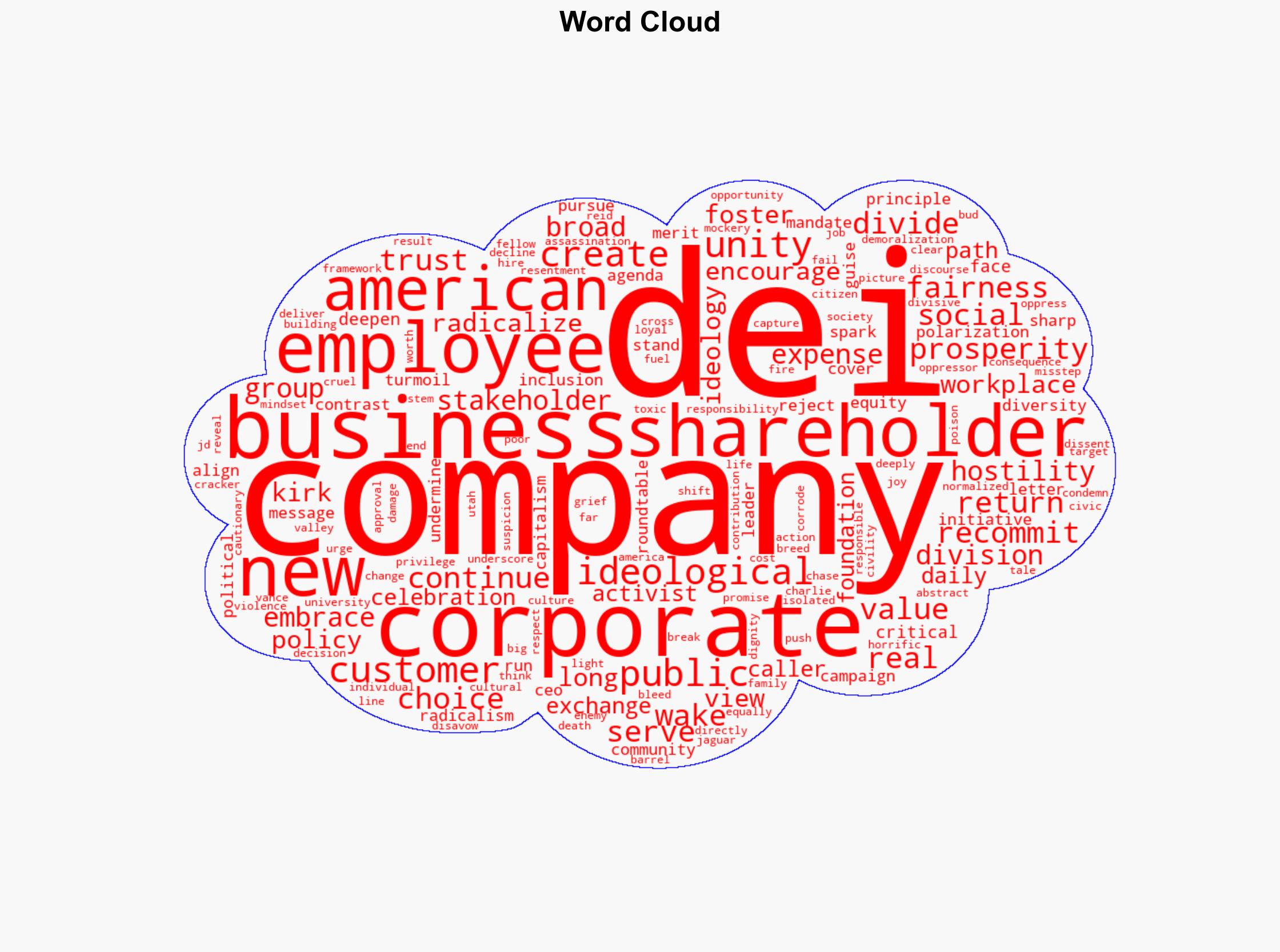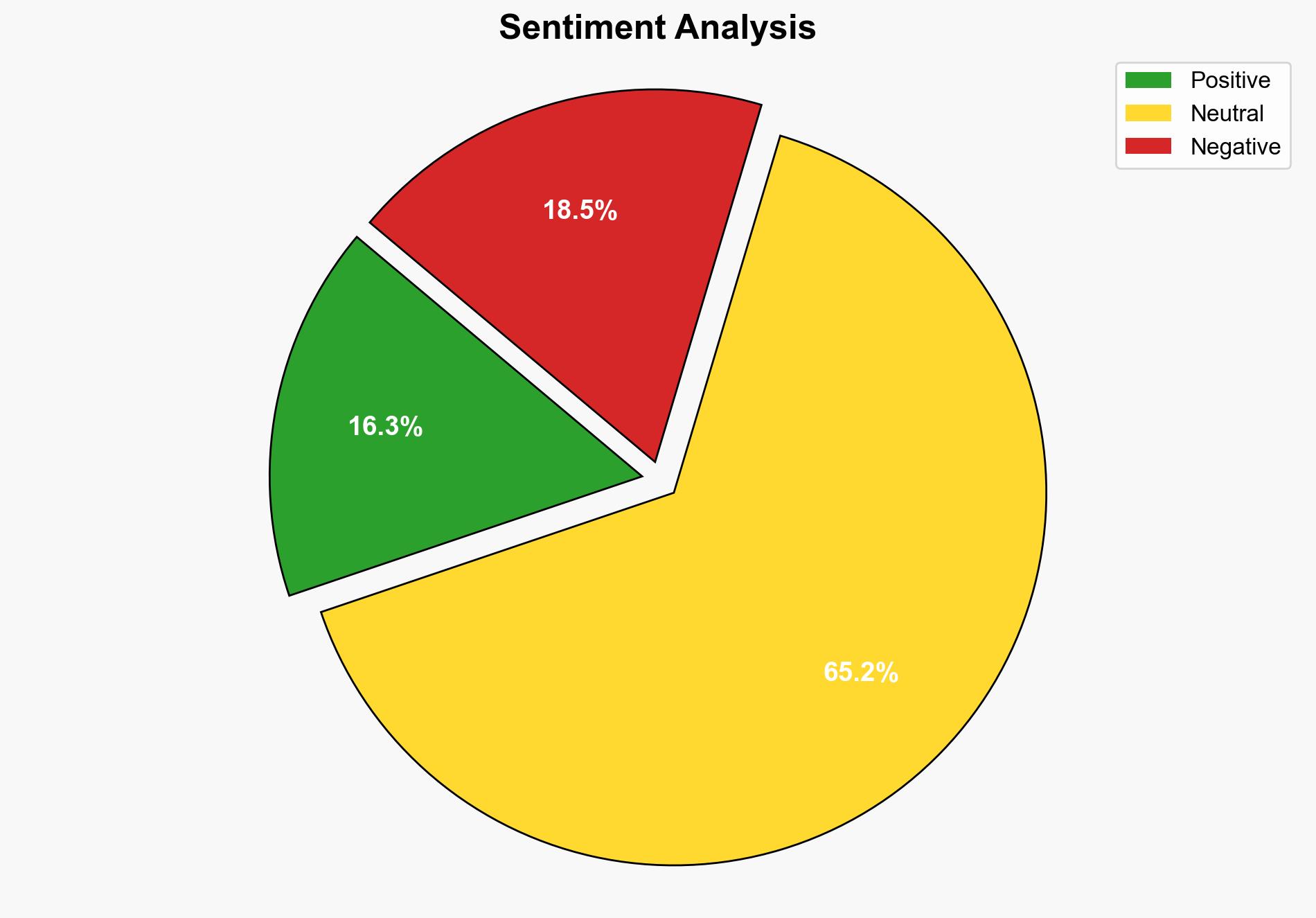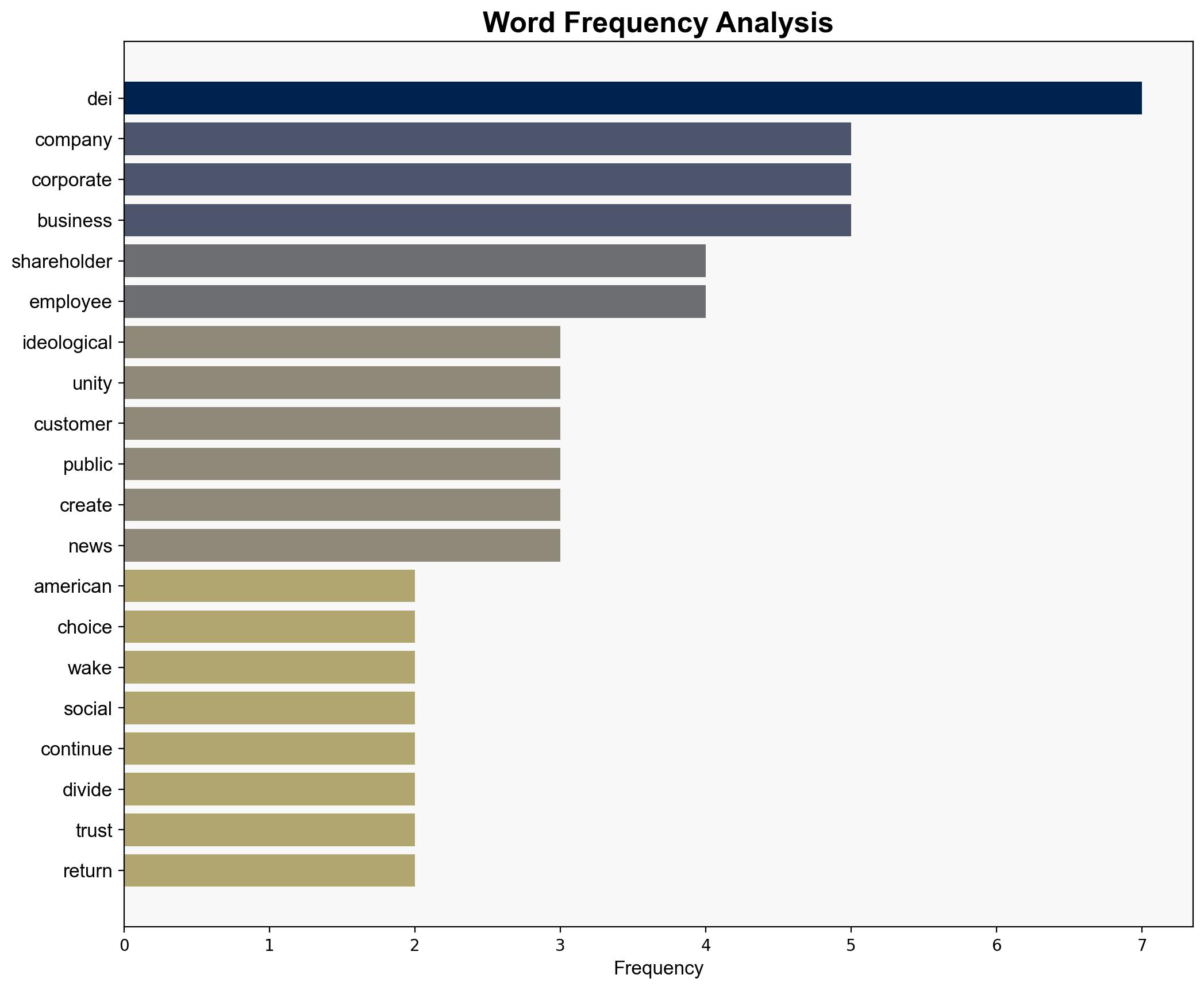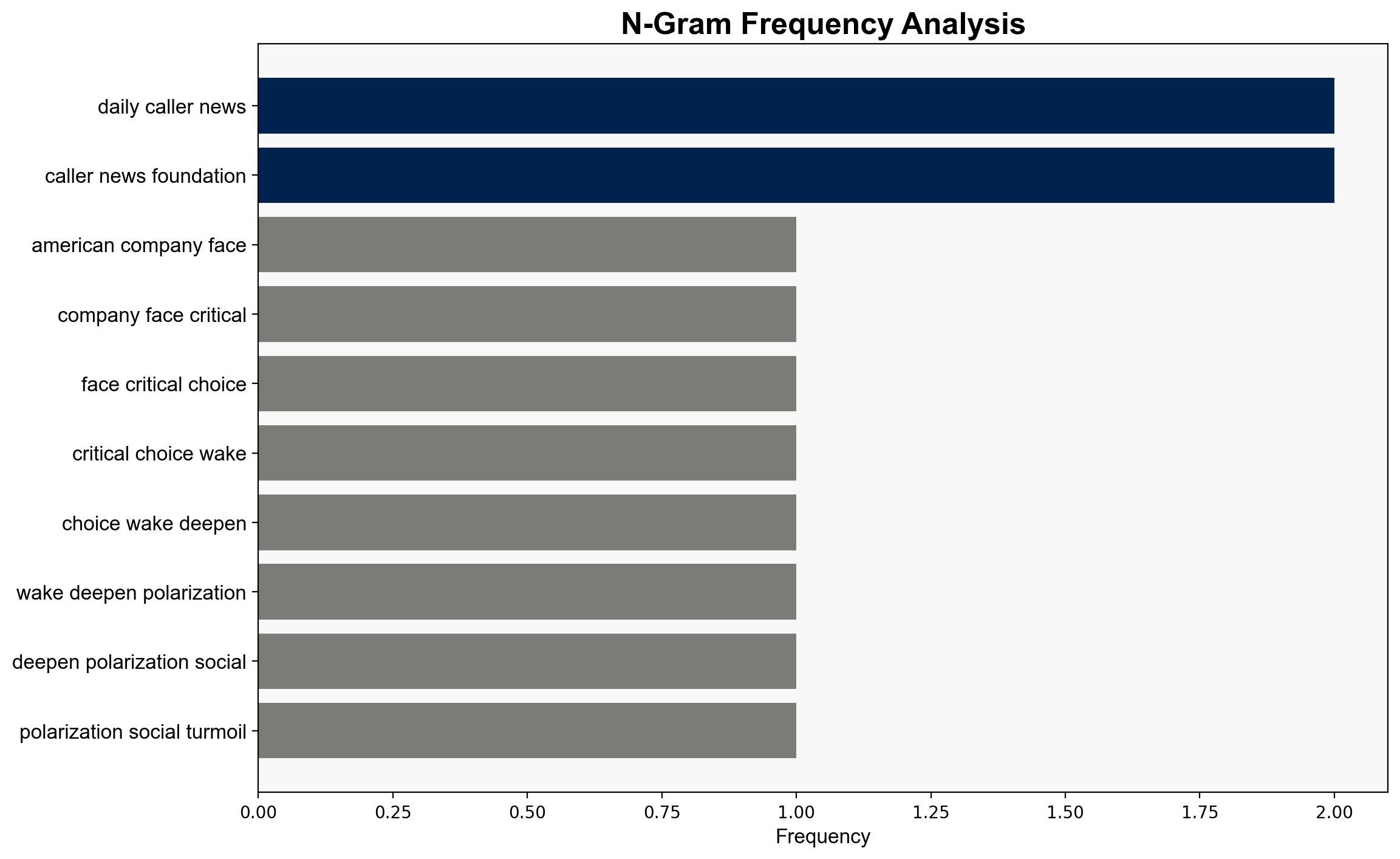DOUGLAS NAPIER Its Time For Corporate America To Get Back To Business – The Daily Caller
Published on: 2025-09-28
Intelligence Report: DOUGLAS NAPIER Its Time For Corporate America To Get Back To Business – The Daily Caller
1. BLUF (Bottom Line Up Front)
The analysis suggests that the hypothesis advocating for a return to traditional business principles over Diversity, Equity, and Inclusion (DEI) initiatives is better supported by the source text. The recommendation is for corporate entities to critically evaluate the impact of DEI policies on their core business objectives and stakeholder relationships. Confidence in this assessment is moderate due to the polarized nature of the discourse and potential biases in the source material.
2. Competing Hypotheses
1. **Hypothesis A**: The push against DEI initiatives is a strategic move to refocus corporate efforts on traditional business values, enhancing shareholder value and societal unity.
2. **Hypothesis B**: The critique of DEI initiatives is a reactionary stance that risks undermining progress in workplace diversity and inclusion, potentially alienating key demographics and stakeholders.
Using ACH 2.0, Hypothesis A is more supported due to the emphasis on shareholder value and societal unity in the source text. Hypothesis B lacks direct evidence in the text but remains plausible given broader societal trends.
3. Key Assumptions and Red Flags
– **Assumptions**: Hypothesis A assumes that DEI initiatives inherently lead to division and that traditional business values are universally beneficial. Hypothesis B assumes that DEI initiatives are essential for modern corporate success.
– **Red Flags**: The source text may exhibit bias, as it presents a one-sided view against DEI without acknowledging potential benefits. The lack of empirical evidence supporting claims of DEI-induced division is a critical gap.
4. Implications and Strategic Risks
– **Economic**: A shift away from DEI could impact corporate reputation and consumer loyalty, particularly among younger, more diverse demographics.
– **Geopolitical**: The stance against DEI could align with broader political movements, influencing regulatory and policy environments.
– **Psychological**: Internal corporate culture may suffer if perceived as regressing on diversity and inclusion, affecting employee morale and retention.
5. Recommendations and Outlook
- Conduct a comprehensive impact assessment of DEI initiatives on business performance and stakeholder relations.
- Engage in dialogue with diverse stakeholders to understand varying perspectives and mitigate potential backlash.
- Scenario Projections:
- Best Case: Balanced integration of DEI with traditional business values enhances corporate reputation and performance.
- Worst Case: Rejection of DEI leads to significant reputational damage and loss of market share.
- Most Likely: Incremental adjustments to DEI policies align with evolving stakeholder expectations without drastic shifts.
6. Key Individuals and Entities
– Douglas Napier
– Joy Reid
– JD Vance
– Charlie Kirk
7. Thematic Tags
national security threats, corporate governance, societal cohesion, stakeholder capitalism




